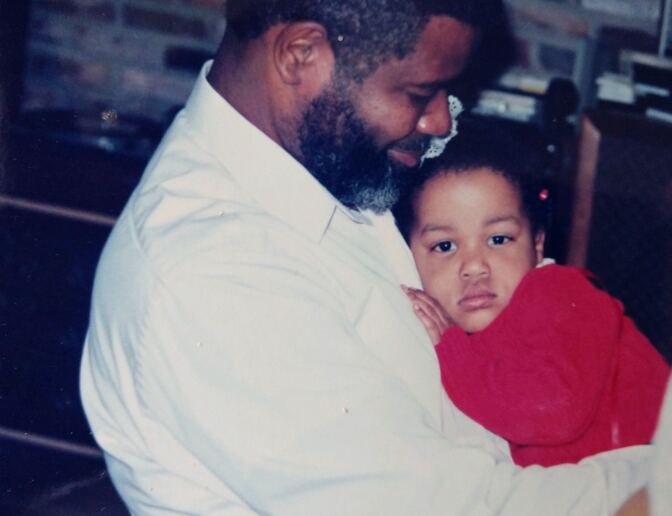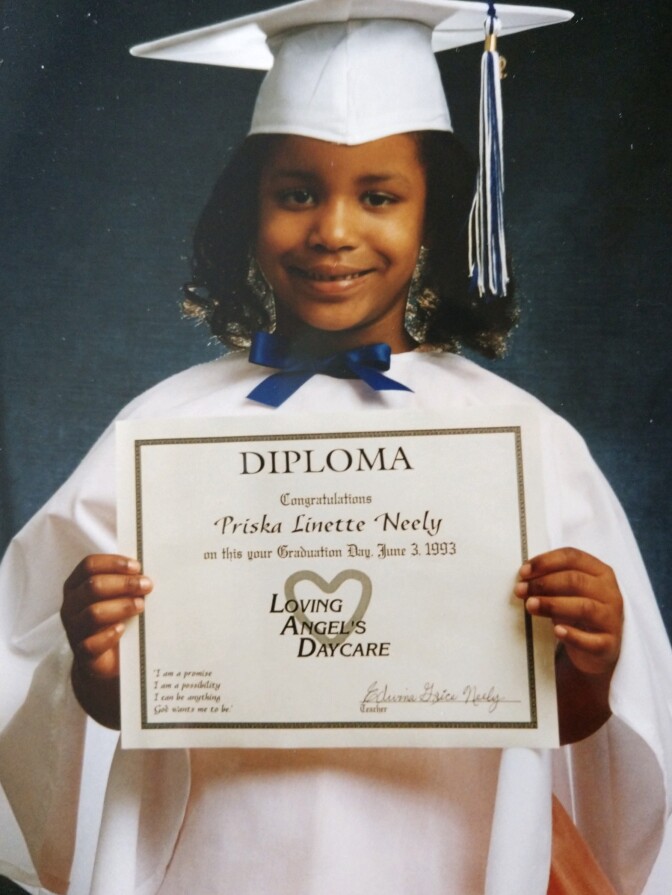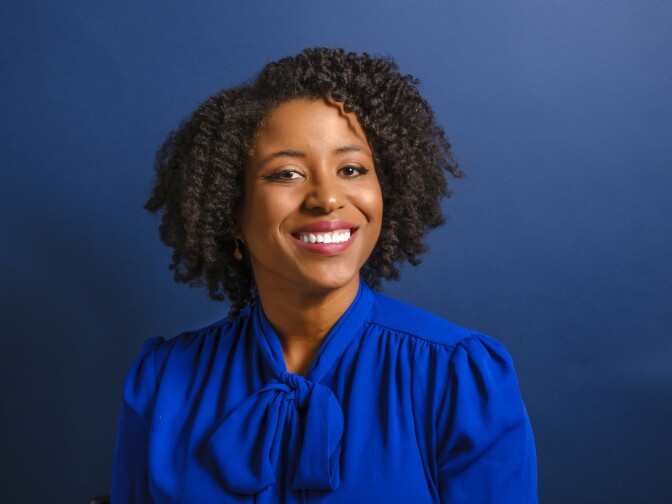The first years of life are so vital to who we become. It’s strange to think how much my parents raised me for the job I have now.
I’m a reporter at KPCC, covering the people, policies and research that shape early childhood. And while I don’t have children of my own, the importance of early learning is something my parents instilled in me.
As the youngest of four, my musical parents were all in on talking, reading and singing to me -- even in utero. A story they love to tell is that I was born screaming and crying. But as soon as my dad said, “It’s OK, Baby” (Baby, because I also didn’t have a name for 10 days, but that’s another story), I quieted. I knew his voice. The nurses urged him to continue, and I stayed quiet.
(Weird that now I can do an unsettling impression of a crying baby.)

Early childhood education sounds like a highly specific beat, but once you dig in, it’s both vast and incredibly relevant. My stories touch on education, health care, politics, business, gender and so much more. As I often say, it’s all connected.
My mom, Edwina Neely, ran a home daycare for 14 years in Maryland. She taught kindergarten and grade school before she decided to start the business, Loving Angels Daycare, so she could stay at home with her youngest children. It’s where I grew up.
So many of the early childhood education workforce issues I cover, like low pay and high turnover rates, are things she knows about first hand. Even with a master’s degree, she was paid $20,000 to run a childcare center at a school.

She returned to the classroom when I started school to earn more money. She taught kindergarten until she retired in her 60s.
When I came onto the early childhood beat in 2017, I attended conferences to learn the lay of the land. That’s also when I heard this statistic: Black babies in the United States are twice as likely to die as white babies in their first year of life.
I realized that my own family is caught up in the numbers. One of my sisters lost two babies who were born very premature. My other sister had my now-12-year-old nephew two months early.
They never knew they were part of a larger narrative — where the gap in outcomes for white and black babies remains regardless of a black woman’s prenatal care, education and socioeconomic status, and that preterm birth is the leading cause of the deaths. And that’s the case for so many black women.
For this issue, and so many others within early childhood, there are countless meetings going on among policymakers, so much research that doesn’t trickle into the lives of those who need it the most. There’s also so much insight that parents and educators have that researchers and public officials may never find out about. I strive to be the connective tissue.
In the last year, my reporting has focused on examining the history of the black-white gap in outcomes, the role of chronic stress and racism and what communities are trying to do to tackle the issue.
The stories started running in June 2018, but they continue to reverberate and coincide with a renewed urgency around this issue in the region. State leaders are putting more funding into the state’s Black Infant Health program and other initiatives aimed at closing the gap in birth outcomes. As Los Angeles County shapes a plan to address the issue, one official told me my work has been a “catalytic force” in getting it on the agenda.
I’m so thankful to be able to be a part of this change. It’s been my dream to tell stories like these ever since I was a young child interviewing people with an imaginary microphone.

I’m even more grateful for my parents, who helped me turn that imaginary microphone into a real one.
Thanks mom. Thanks dad.
So many of my stories have been the direct result of listening to people just like you. If you’re a parent or early childhood educator, tell me what changes you’re noticing, what issues affect your life and what questions you have.










